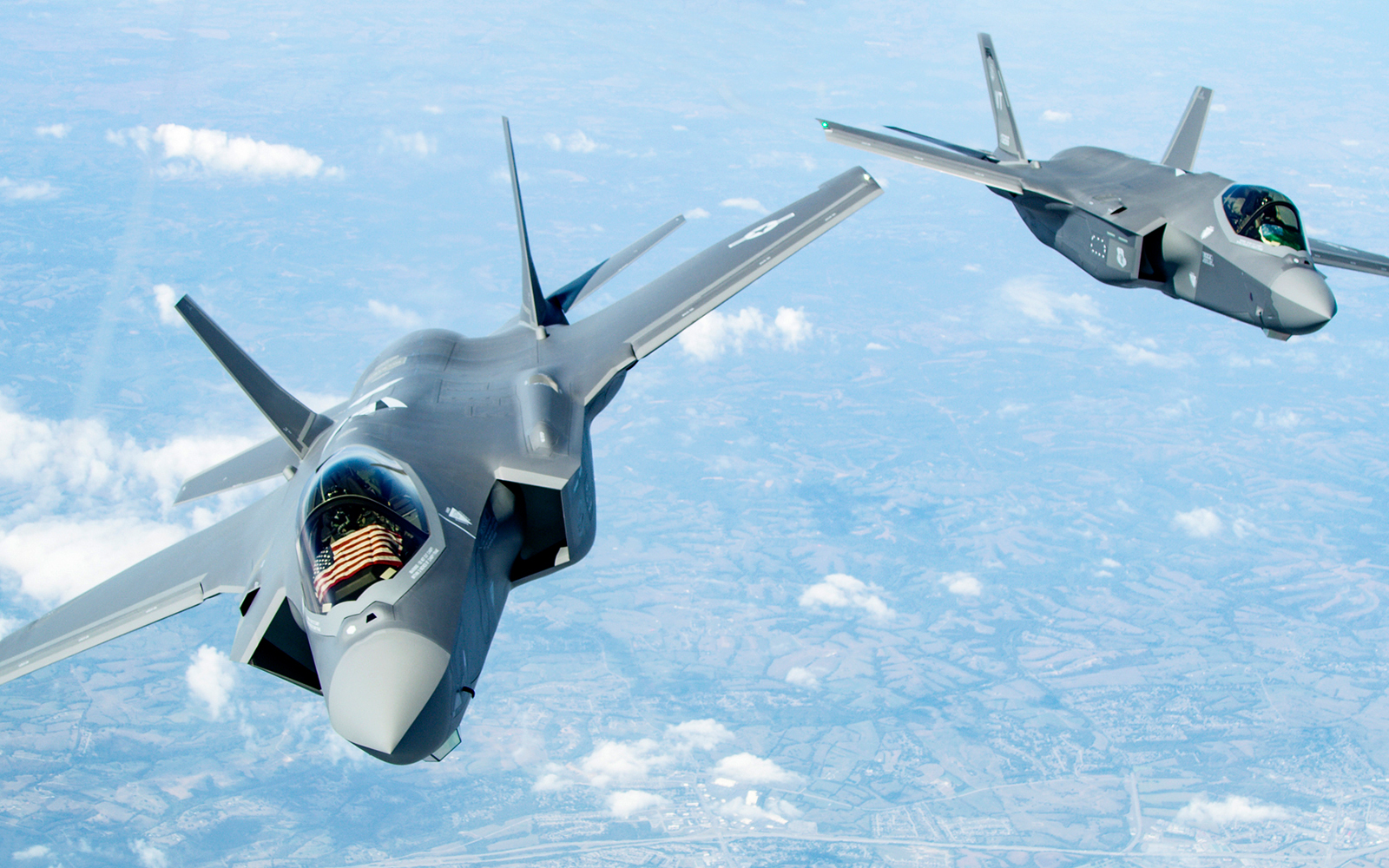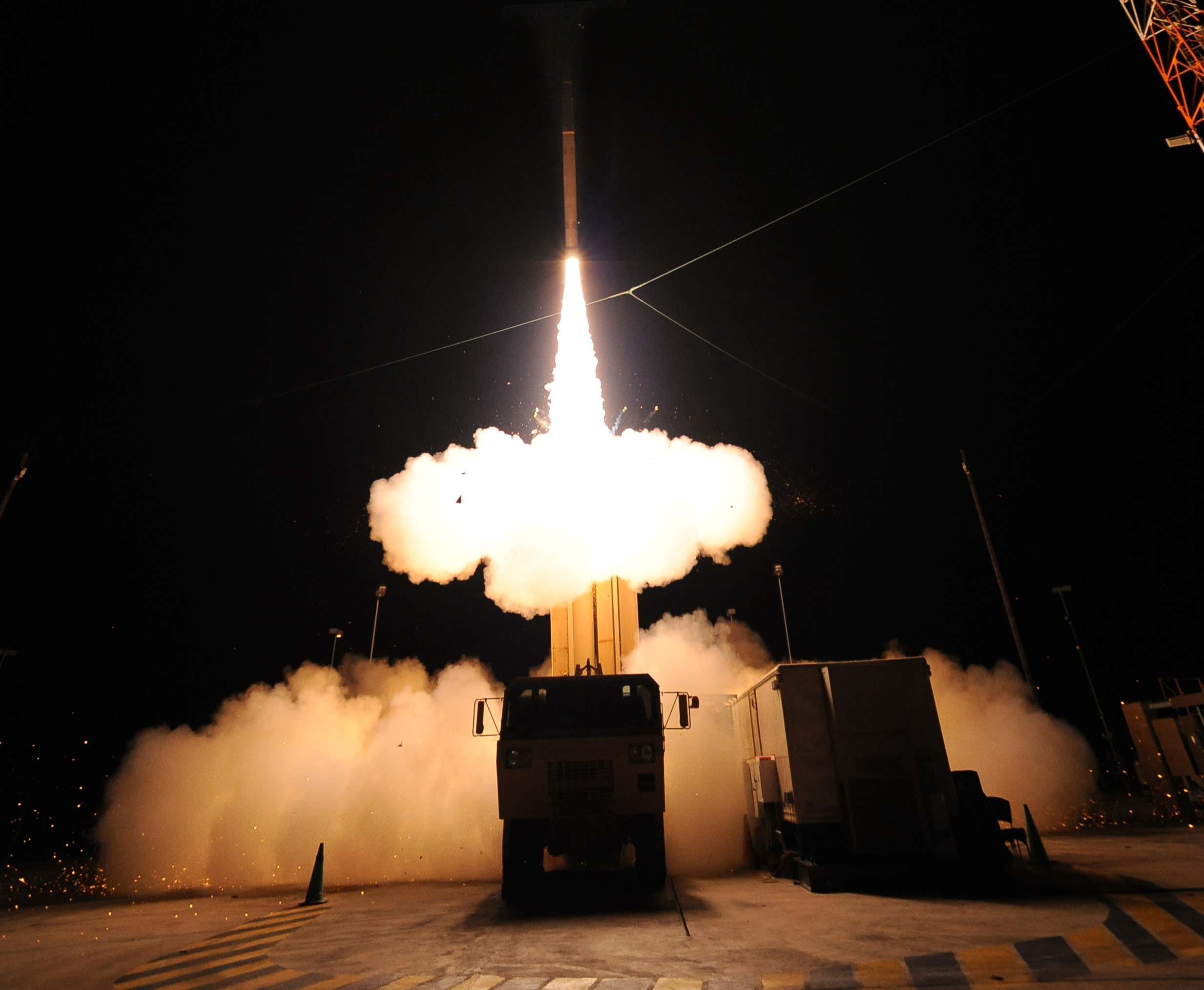France announced on February 5 that its Rafale fighter planes will conduct aerial surveillance for the United Arab Emirates (UAE) in order to protect the Gulf country’s airspace against drone and missile threats.
20 French Rafale-M Fighters Go Into Action With F-35 Stealth Jets As Indian Navy Hunts For Its Naval Warplanes
Of late, the UAE has been a target of a series of drone and missile assaults from Iran-backed Houthi rebels as the conflict in Yemen has escalated.
Yemen-based militant groups launched three drone and one missile strikes against the UAE recently, according to Emirati officials. The attacks began in January, when UAE-backed Yemeni forces launched an offensive against the Houthis in Marib, in the country’s central region.
In a gesture of solidarity with the UAE, French Defense Minister Florence Parly announced on Twitter that Paris will provide military support to protect Emirati airspace from intrusion. “The United Arab Emirates was [a] victim of serious attacks on its territory in January,” Parly tweeted.
Des avions de combat Rafale, qui appartiennent à notre dispositif permanent basé à Abou Dabi, sont ainsi engagés aux côtés des forces armées émiriennes dans des missions de surveillance, de détection et d’interception en cas de besoin. pic.twitter.com/Zvy61yTr4M
— Florence Parly (@florence_parly) February 4, 2022
The agreement with Abu Dhabi will see missions performed from the Al-Dhafra airbase, which will provide refueling and surface-to-air capacities, according to the French Armed Forces Ministry. “Aircraft operations are planned in coordination with the Emirati air forces, to detect and intercept drone strikes or cruise missiles targeting the UAE,” the ministry said.
Seven Rafale jets stationed at Al Dhafra airbase will work with the Emirati military on surveillance, detection, and interception missions, Parly added.
France has a permanent military base in Abu Dhabi and maintains close economic and political relations with the Emirati capital. It agreed to sell 80 latest variant Rafale fighter jets to the UAE in December, marking the biggest ever export of the French fighter jet.

The UAE defense ministry also confirmed that it was strengthening its military cooperation agreement with France, a move that it said was addressed during a visit to Paris by its joint operations commander Major General Saleh al-Amiri. French troops in the UAE currently number around 650, a French defense ministry official said.
Since the 1990s, the UAE and France have signed a series of defense agreements, including one in 2008 that gave France its first permanent military post in the Gulf, at Al Dhafra military airport.
US To Deploy Destroyer, Fighter Jets
The United States is also sending a warship and advanced fighter jets to defend UAE from missile attacks.
Cruising Under The Great Wall: China’s Unmanned, High-Speed Bullet Train ‘Adds To The Thunder’ Of Winter Olympics
The US Secretary of Defense Lloyd Austin told the UAE’s Crown Prince, Mohammed bin Zayed Al Nahyan, in a phone call earlier this week that the Pentagon will send the “guided-missile destroyer, USS Cole, to partner with the UAE Navy before making a port call in Abu Dhabi,” according to a Pentagon statement. USS Cole is an Arleigh Burke-class guided-missile destroyer.
According to a readout of the conversation shared by the Pentagon, Austin reportedly assured the crown prince that Washington would deploy fifth-generation fighter aircraft — a category that covers US-made F-22 Raptor and F-35 Lighting II combat fighters — to the UAE to “help against the current danger”.

On February 4, the US State Department issued preliminary approval to a potential sale of a series of weapons to its Middle East allies Jordan, the United Arab Emirates, and Saudi Arabia.
Saudi Arabia also gained approval from the US to buy 31 MIDS-LVTs, communication terminals that link air, ground, and maritime channels for coordinating operations — in a contract valued at $23.7 million, according to the Defence Security Cooperation Agency (DSCA). The MIDS-LVTs would be integrated into the Thaad missile defense system in Riyadh.
Meanwhile, the UAE has received preliminary approval for a $65 million purchase of replacement and repair parts for its Hawk, Patriot, and Thaad missile defense systems. The State Department informed Congress of the potential sales on February 4, and despite the Biden administration’s clearance, they could still be halted if Congress approves legislation prohibiting them.
The Houthi strikes present a threat to American troops deployed at Al Dhafra Air Base in Abu Dhabi. Nearly 2,000 American troops took shelter in bunkers at the airbase when the US activated Patriot missile air defenses in response to a missile attack. The US is also providing the UAE with early-warning intelligence to monitor Houthi launch sites.
In addition, During Israeli President Isaac Herzog’s visit to the United Arab Emirates on Monday, a third missile assault was thwarted by air defense systems. The growing threat posed by the Houthis is prompting the Biden administration to rethink its policy.

The UAE ambassador to the US, Yousef Al Otaiba, and the UAE envoy to the United Nations, Lana Zaki Nusseibeh, authored an op-ed in The Wall Street Journal on January 31 urging world leaders to do more to resist the Houthi menace.
“The UAE’s opening of direct ties with Israel created new possibilities,” they wrote. “We are expanding diplomatic efforts across the region toward dialogue and de-escalation. Less shooting and more talking is the only way to build the Middle East neighborhood we all want.”
- Contact the author at ashishmichel@gmail.com
- Follow EurAsian Times on Google News





